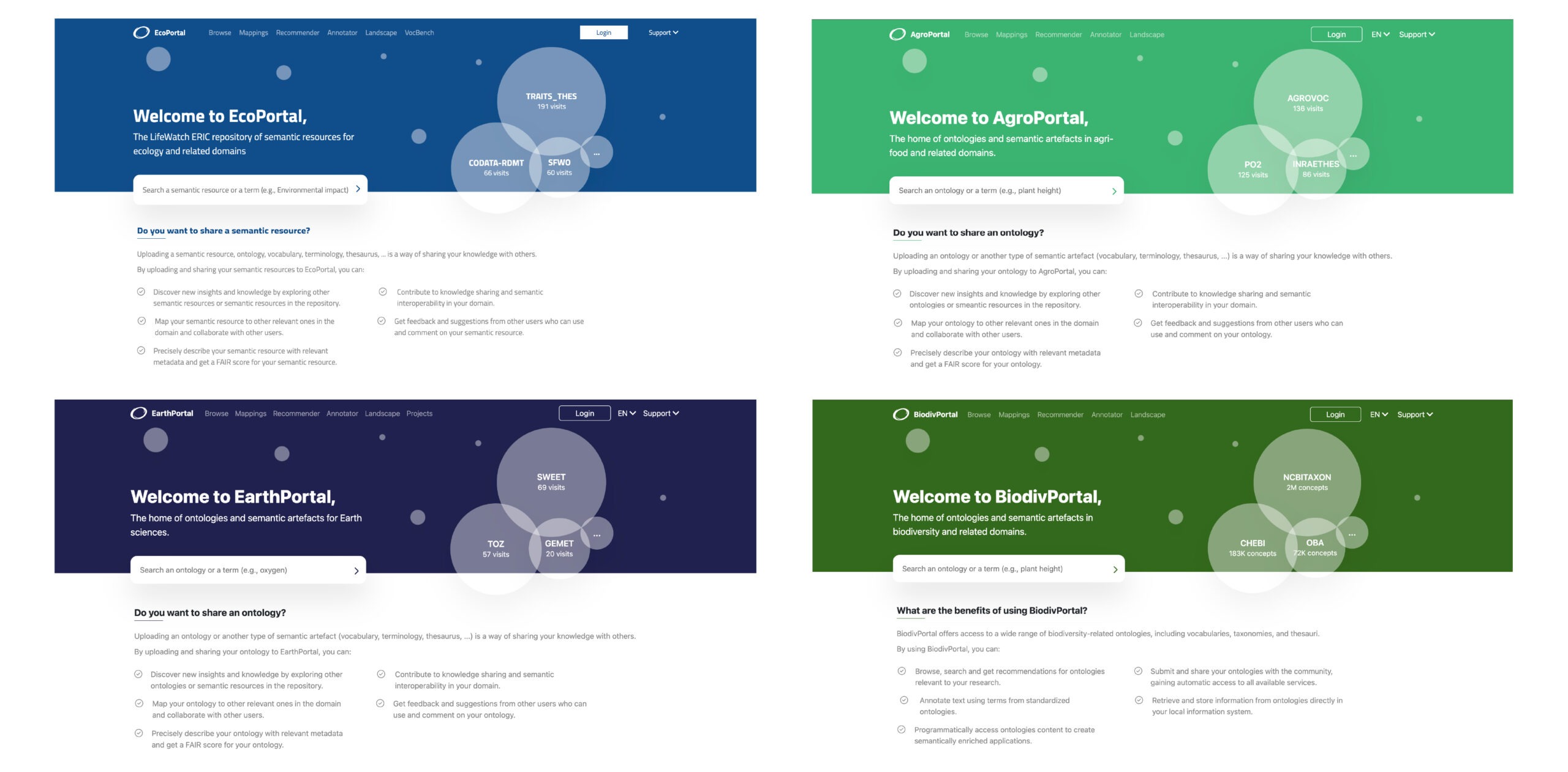
We are thrilled to announce the new release of EcoPortal, the LifeWatch ERIC repository of semantic resources for ecology and related domains. This is a major update that introduces the federation feature to OntoPortal and activates this for EcoPortal.
With this release, you can now explore ontologies across multiple federated portals using our new federated browsing and search features, enabling seamless access to ontologies from other OntoPortal instances. This is a joint release with AgroPortal, EarthPortal and BiodivPortal i.e., each portal is now connected to each other and displays some content from the others.
This version also includes significant performance improvements, bug fixes, and user interface upgrades to make your experience smoother and more intuitive.
EcoPortal is designed to facilitate the work of researchers in the ecology domain, supporting the community in the creation, management, mapping and alignment of its semantic resources and subsequently also of its data. Users can upload and share their semantic resources to the portal, while discovering new insights and knowledge by exploring other semantic resources in the repository; they can map their semantic resources to other relevant ones in the same domain and collaborate with other users; they can describe their semantic resources with relevant metadata and get a FAIR score for them. Moreover, they can get feedback and suggestions from other users, who can use and comment on their semantic resources.
Technically speaking, this federation is done “at the user interface level” and the federation architecture is rather simple, being specifically developed to query and aggregate the results from multiple backends. The user interfaces have been significantly changed to handle the results coming from different portals while helping users to understand what is going on and addressing performance issues (e.g., it includes logic to manage duplicate results, optimise result ranking, and manage portal availability). What are the main properties of this federation feature? In few words: a federated documentation, federated categories, federated user interfaces, federated browsing and federated search.
Ontology developers who own a resource in EcoPortal may also have some category assignment double check too.
Check out the full EcoPortal documentation here: https://ontoportal.github.io/documentation/user_guide/EcoPortal
We appreciate your support and look forward to hearing your feedback!
The OntoPortal federation has been achieved in part with the context and support of the European Project FAIR-IMPACT (101057344) and with the collaboration of the OntoPortal Alliance.